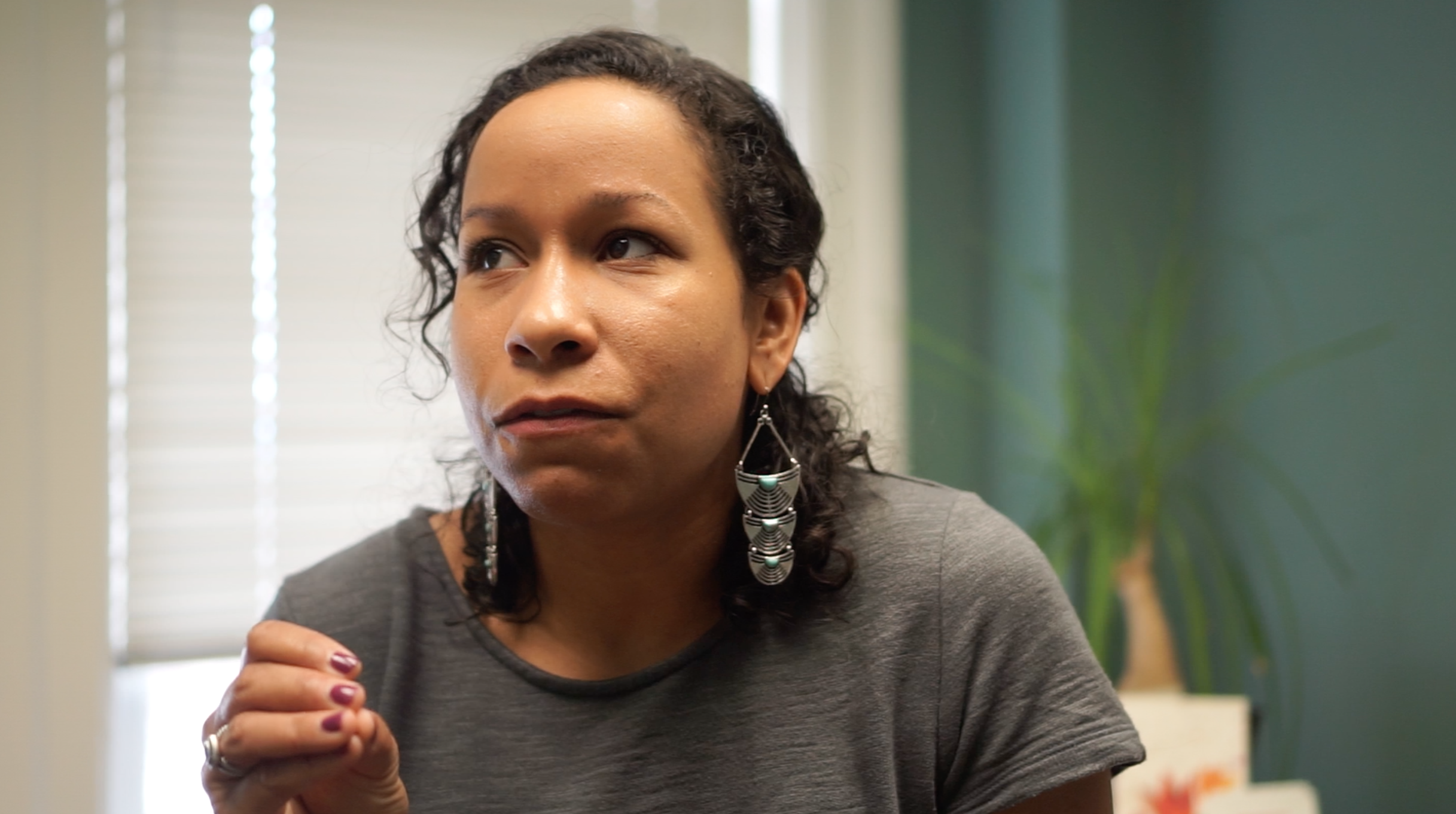Renee Myers

“All kids, no matter their social status, economic status, or cultural background, share a love for nature and should have the ability to have access to nature.”
My name is Renee Myers and I’m the Executive Director for Forest Park Conservancy.
Forest Park is a 5,200 acre urban forest. It is the largest natural area that we have in Portland and because of its location, all being within the city limits, it helps to provide clean air and clean water to the city and helps make our communities and our city more livable.
The Conservancy’s mission is to protect and restore Forest Park for future generations. [There are] a lot of restoration projects within Forest Park and on private land, and one of our core programs is trails. We like to promote recreation in the park, and part of that is to help restore and maintain 47 miles of soft-track trail within the park.
We inherited a lot of great work from the generation before us, and we take it very seriously, as a leader in conservation, to help carry that work forward. We think by inspiring and engaging youth, they will take on this work and carry it on for the next generation, and hopefully their children [will] as well.
I think you get kids to care by just letting them be in the natural environment. When you have a space like Forest Park, there’s so much wildlife. You have birds. You have small mammals. You have slugs. You have frogs. By letting them be able to touch and feel and experience and use all five senses, how can they not be inspired? Kids are naturally curious. And when they’re curious, it inspires learning and they become naturally engaged.
As a mom of three, [I know] kids have a lot of stimuli and their lives are very intense between school and social media and peers. I think once they get out into nature, they get to forget about all of that. They get to be quiet and be in a space where they don’t have that stimuli. We cannot live without a healthy environment and they can’t understand that unless they actually experience it. So give them the opportunity to make the connection and understand that we’re all interconnected and that we do have a role in helping to protect the environment. They don’t have to worry about what they look like or what kind of clothes [they wear]. They’re able to get dirty and actually experience nature and live in it and be in it. They start to tie the health of their communities and who they are as people. I think they can’t do that unless they’re actually living it and getting out in it.
People are always amazed how we have a 5,200 acres urban forest right here in the city, five minutes from downtown. I think that people who experience that for the first time are just amazed by it. I see families’ ability to have their kids run free a little bit. There are so many boundaries and structures around kids, [but] they get out [into Forest Park] and they get to explore and be free and use their imagination. They get to be kids; it’s this freedom to learn on their own. It’s pretty amazing.
I grew up on a large crop farm in Upstate New York and so my whole world as a kid was playing outside. Basically the door was open in the morning and I spent all day exploring in the woods with my friends. Understanding how you can have conservation and you can live off the land at the same time started to instill in me how people and the environment can live together. But we have to steward it and protect it. And so that has been carried forth all throughout my career. I’ve always made it my mission to help protect the environment, on both on a local and a global level.
Forest Park Conservancy feel[s] that it is critical that we engage and inspire our youth about the outdoors at a very young age. It’s such a great opportunity for kids to be able to do that through Outdoor School.
We believe that all kids should have the right to be outside and be in nature no matter what. There are a lot of communities that don’t have the economic means or the access. All kids, no matter their social status, economic status, or cultural background, share a love for nature and should have the ability to access nature. That is one thing that I really love about Outdoor School.





